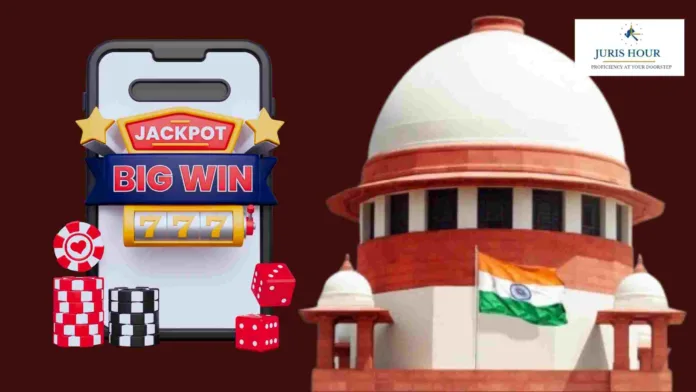After four intensive weeks of courtroom arguments, the Supreme Court today brought to an end the final hearing of the consolidated Gameskraft batch of cases, which challenges the constitutional validity and interpretation of GST imposed on online gaming and casino bets.
A two-judge bench comprising Justices J.B. Pardiwala and R. Mahadevan presided over the proceedings. The arguments comprised two weeks conducted before the court’s vacation break, followed by another two weeks after its resumption — culminating today in the completion of hearings. The bench announced they would take time to consider the complex legal issues before delivering their pronouncement.
Background & Stakes
- The litigation stems from a 2023 GST Council notification that imposed a 28% GST on the full face value of bets in online gaming, casinos, and horse racing platforms, including Gameskraft. This retroactive tax decision sparked sector-wide uncertainty, especially given that many firms had historically applied GST on their gross gaming revenue (GGR) or commissions instead.
- Show-cause notices totaling over ₹1 lakh crore (with industry estimates climbing even higher) were issued to more than 70 gaming entities. The apex court stayed these notices in early 2025, pending the outcome of this batch case.
Key Legal Arguments
On Classification — Goods vs. Services
Representatives from the gaming and casino industry argued that categorizing the full bet amount as consideration for a service contravenes key provisions of the GST law. They underscored that:
- A casino platform’s earnings typically derive from a small portion of the bet pool (like pot collection)—not the full face value placed by players—thus undermining the notion that bet value should be treated as taxable “supply.”
- In peer-versus-player games (e.g., poker), the platform merely facilitates gameplay, and only a service fee or commission is ever collected—not the full wager.
On Valuation Principles
- Counsel highlighted that face value cannot logically be the basis of valuation under Section 15(1) of the CGST Act, as it neither accrues to nor is received by the platform. What is taxed should reflect the actual supply provided—not the notional amount bet.
On Skill vs. Chance
- A critical line of argument concerned the legal distinction between games of skill and games of chance. The industry argued these categories were improperly merged under the 2023 notification, removing the nuanced GST treatment for games predominantly reliant on skill.
Final Note
With the hearings now concluded, all eyes turn to the bench’s deliberations. The ruling is poised to have far-reaching implications—not only for the future of taxation in India’s booming online gaming sector but also for its regulatory clarity, investor confidence, and overall industry sustainability.
Read More: Trump Clarifies: No Additional Tariffs on Gold Imports Amid Global Market Jitters

